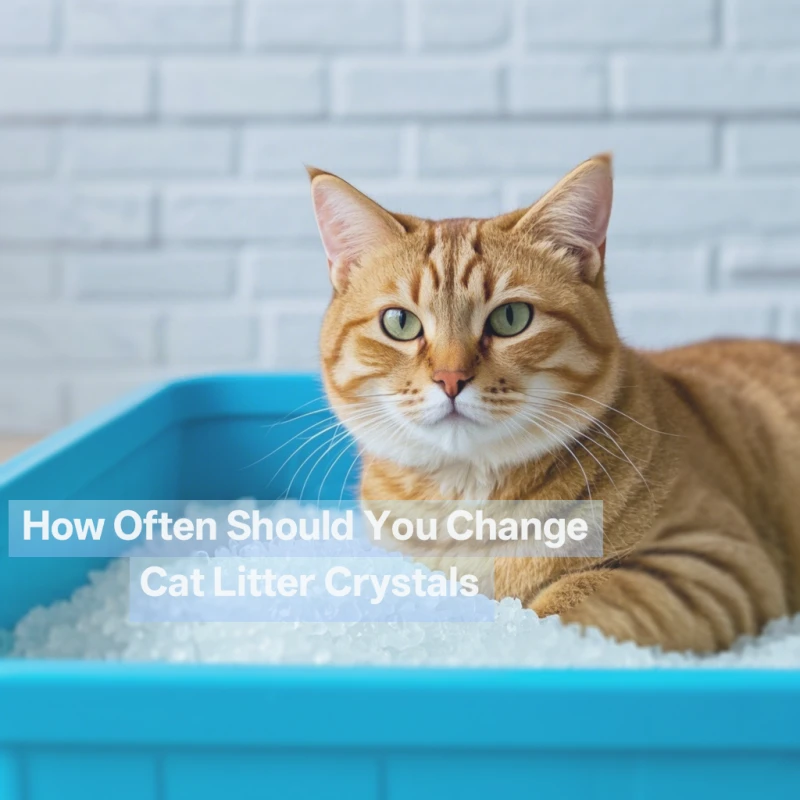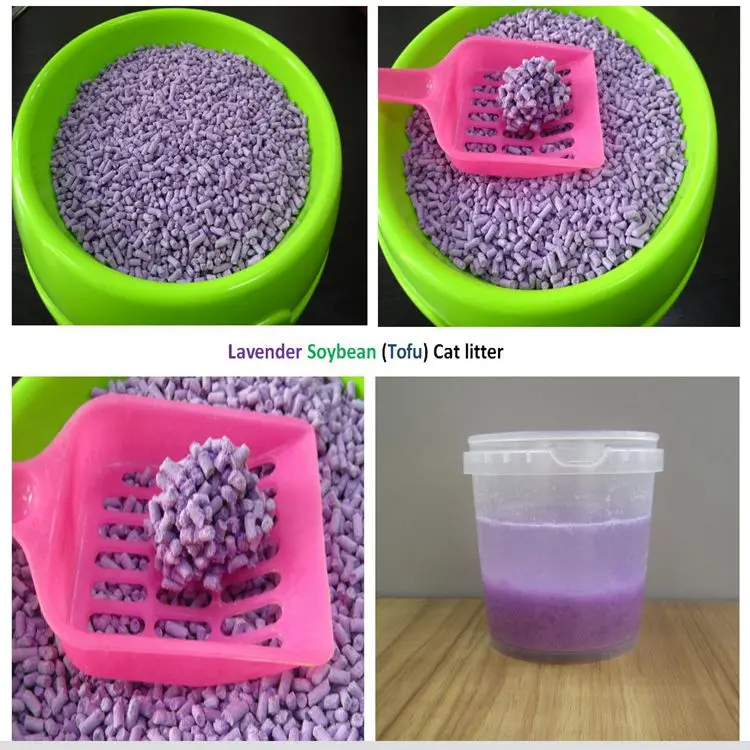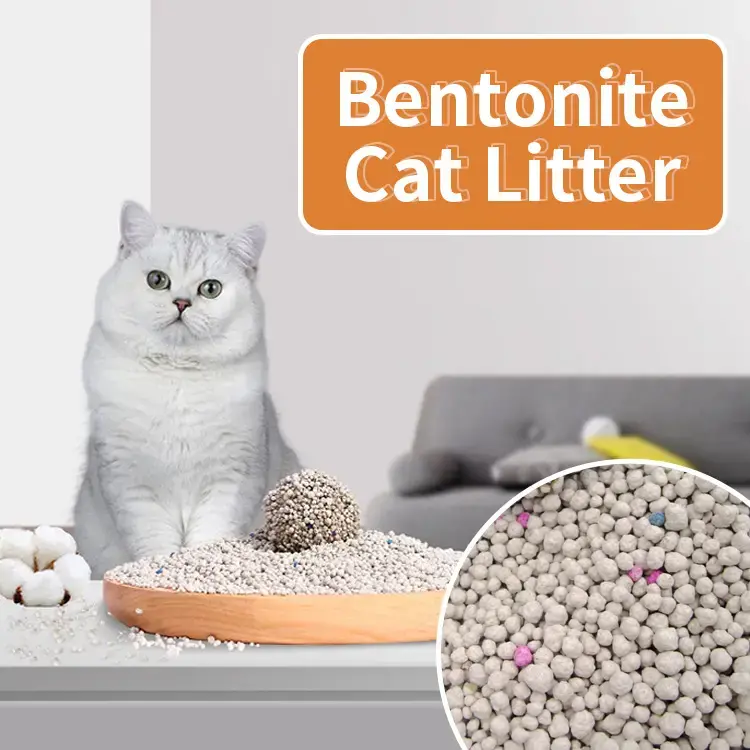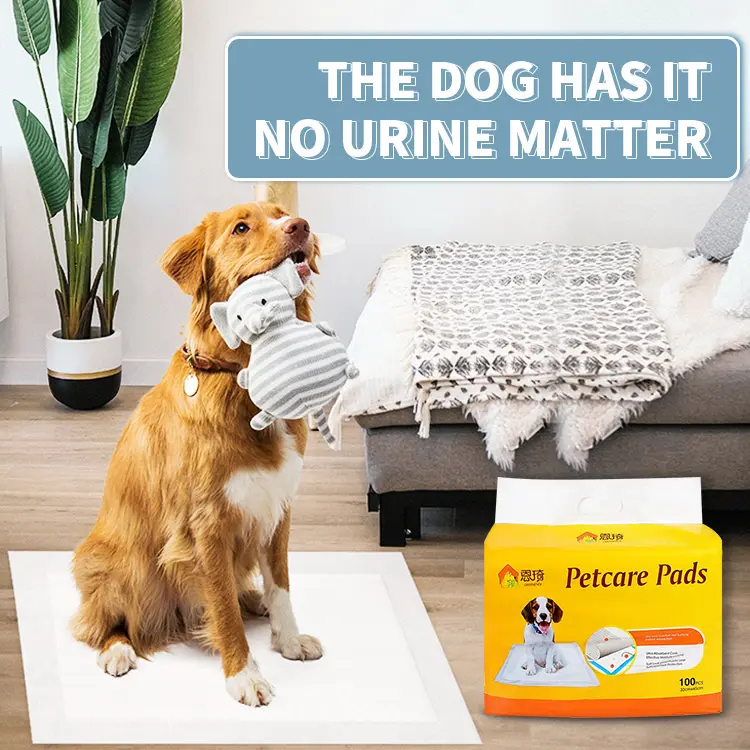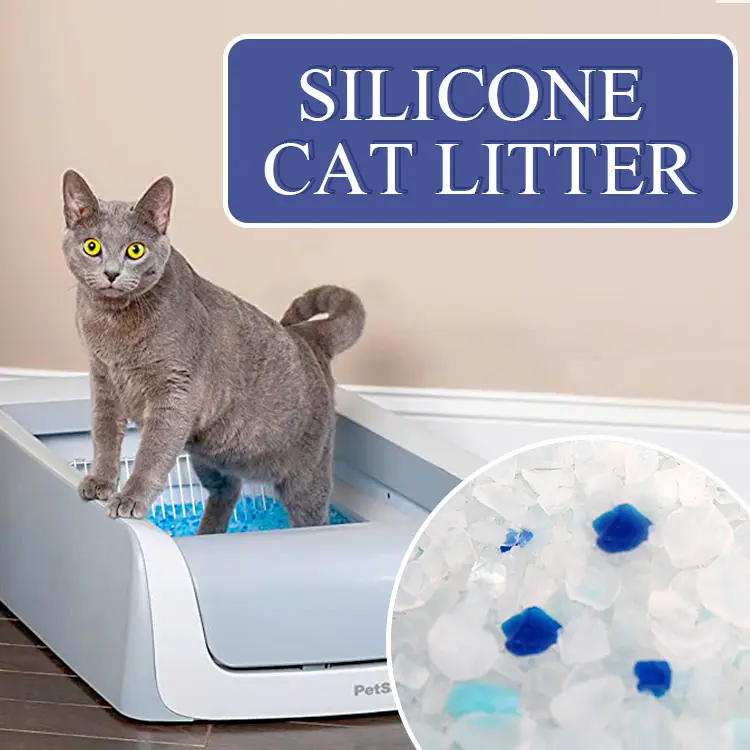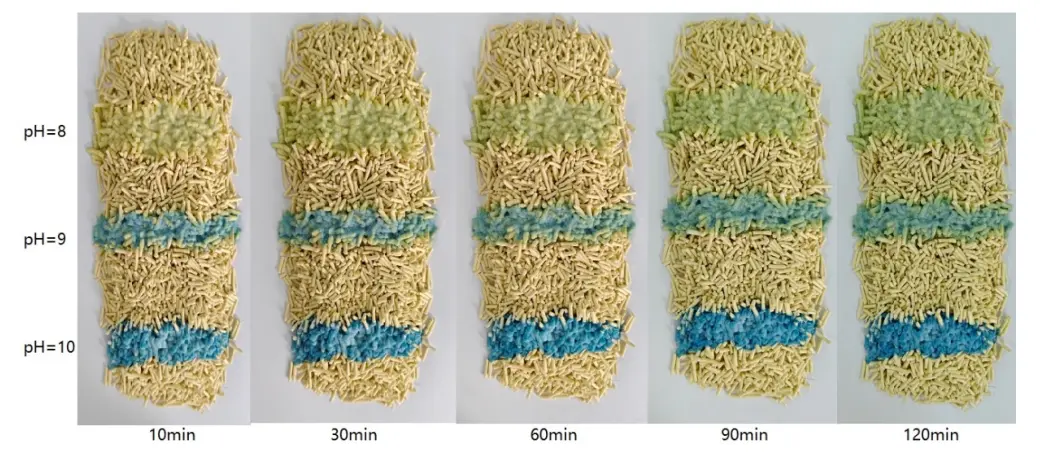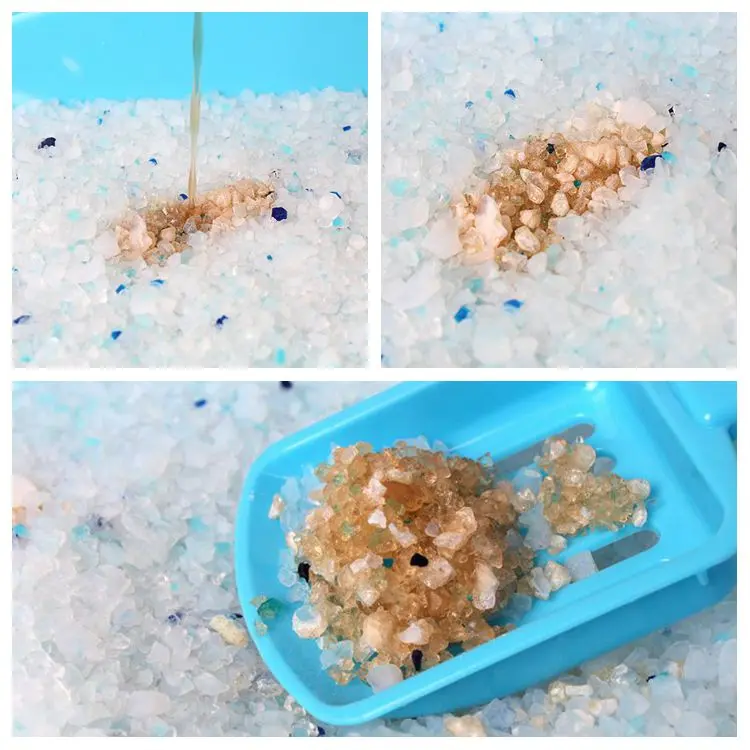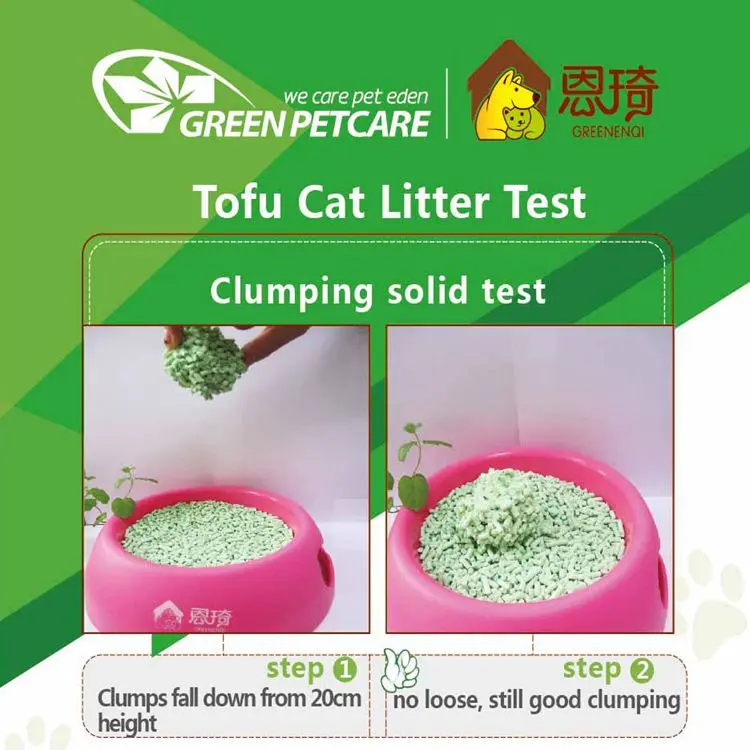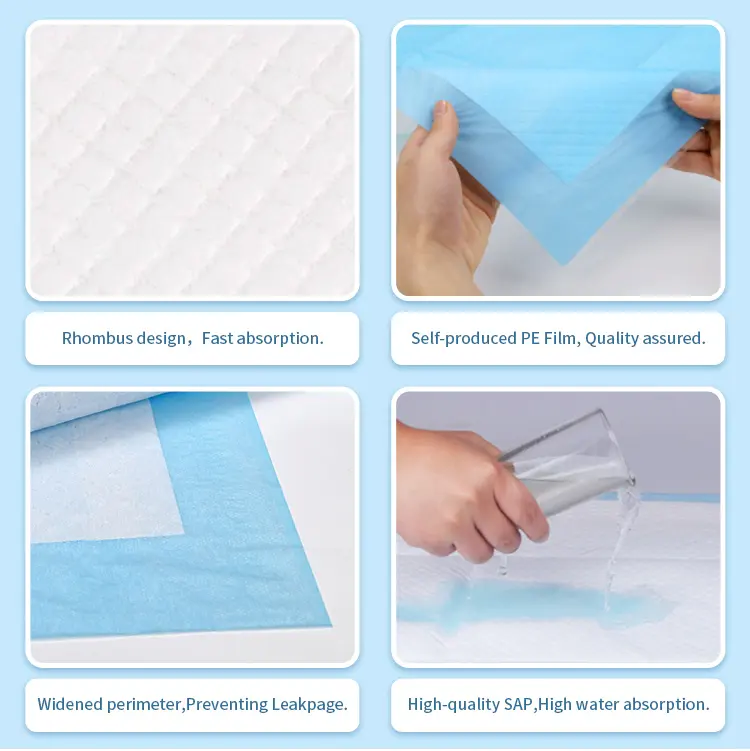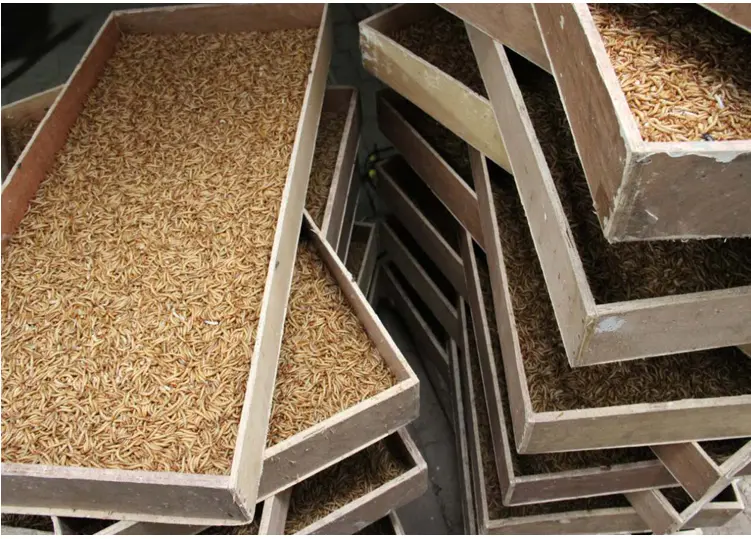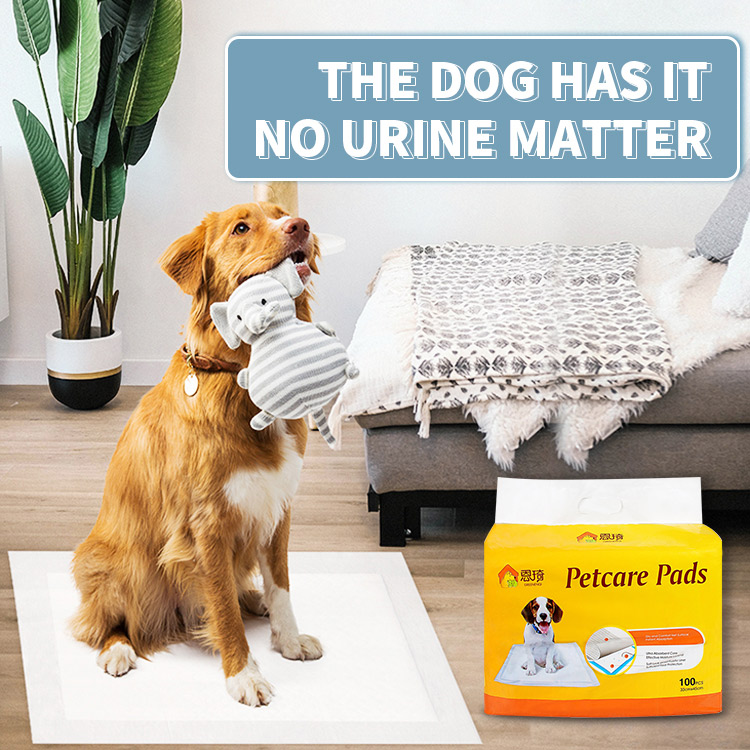Cat litter crystals, also known as silica gel litter, have become a popular choice for cat owners due to their superior odor control, absorbency, and low-maintenance nature. But how often should you change cat litter crystals to ensure a clean and hygienic environment for your feline friend? The answer isn’t as straightforward as you might think—it depends on several factors like the number of cats, litter box habits, and environmental conditions. In this comprehensive guide, we will dive deep into the science behind cat litter crystals, look at research-backed recommendations, and provide practical tips for maintaining a fresh litter box.
Understanding Cat Litter Crystals
Unlike traditional clay or clumping litter, cat litter crystals are made from silica gel, a porous material capable of absorbing large amounts of moisture while neutralizing odors. This unique composition makes it different from other litters in the following ways:
Superior Absorption: Silica gel can absorb nearly 40% of its weight in moisture, making it last longer than traditional litters.
Odor Control: The structure of the crystals traps ammonia, significantly reducing unpleasant smells.
Dust-Free and Low Tracking: Unlike clay litters, which produce a lot of dust, silica crystals are nearly dust-free, making them ideal for allergy-prone pets and owners.
Non-Clumping: Unlike bentonite clay, silica litter does not form clumps, so the maintenance process is different.
Recommended Change Frequency
Single-Cat Household:
Light Use (1 cat): Completely change every 2-3 weeks.
Heavy Use (frequent use of cat litter box): Change every 10-14 days.
Multiple Cat Households:
2 cats sharing 1 litter box: Check weekly and change every 7-10 days.
Recommendation: Increase the number of litter boxes to reduce the load and extend usability.
Key Indicators for Changing:
Crystal color change (from clear → yellow/saturated).
Moisture absorption rate decreases significantly.
Odor cannot be controlled (even if the feces are scooped daily).
How Often Should You Change Cat Litter Crystals?
Most manufacturers recommend completely replacing cat litter crystals every two to four weeks, but real-world usage varies. Several factors influence how often you should change the litter:
1. Number of Cats Using the Litter Box
The more cats sharing a litter box, the faster the crystals become saturated. If you have:
| Number of Cats | Recommended Replacement Frequency |
|---|---|
| 1 cat | Every 3-4 weeks |
| 2 cats | Every 2-3 weeks |
| 3+ cats | Every 1-2 weeks |
For multi-cat households, frequent stirring and spot-cleaning are crucial to extend the life of the crystals.
2. Cat’s Hydration and Urination Frequency
Some cats drink more water than others, leading to more frequent urination and quicker saturation of the litter. If your cat is well-hydrated or has a medical condition (like diabetes), you may need to change the litter more often.
3. Ventilation and Humidity Levels
High humidity can impact silica gel’s ability to absorb moisture efficiently. In humid environments, cat litter crystals may need replacing sooner than in dry climates.
4. Stirring and Spot Cleaning
Regularly stirring the litter helps distribute moisture more evenly, extending its usability. Daily removal of solid waste also prevents odors and bacterial buildup.
Factors Affecting Change Frequency
Number of Cats – The more cats using the box, the quicker the litter becomes saturated.
Ambient Humidity – High humidity accelerates moisture absorption, reducing litter longevity.
Cat Litter Box Size – Smaller boxes require more frequent changes due to limited litter volume.
Cat Habits – Cats that drink more water urinate more, requiring faster litter changes.
Brand Differences – Different brands have varying moisture absorption efficiencies (e.g., Fresh Step vs. Pretty Litter).
Research-Backed Insights on Litter Box Maintenance
A study conducted by the American Veterinary Medical Association (AVMA) found that improper litter box maintenance is a leading cause of litter box avoidance in cats. The study highlighted:
Cats prefer clean litter boxes: 80% of surveyed cats were more likely to use a freshly cleaned box.
Odor matters: Ammonia buildup was a key factor in litter box rejection.
Multi-cat households require frequent cleaning: Homes with more than one cat saw a 60% increase in litter box avoidance when litter was not replaced frequently enough.
Practical Tips to Extend the Life of Cat Litter Crystals
While replacing the litter every few weeks is necessary, there are ways to maximize its lifespan:
Scoop Out Solid Waste Daily
Unlike clumping litter, silica gel doesn’t require daily full scooping, but removing solid waste daily helps maintain cleanliness.
Stir the Litter Regularly
This distributes moisture evenly and prevents wet spots from forming.
Use a High-Quality Litter Mat
A mat around the litter box reduces tracking, keeping surrounding areas cleaner.
Maintain Proper Ventilation
Keeping the litter box in a well-ventilated area can help slow down odor buildup.
Choose a Premium Brand Like Green Pet Care’s Silica Cat Litter
Our Green Pet Care Silica Cat Litter offers superior absorption and odor control compared to standard brands, ensuring a longer-lasting and fresher litter box experience.
Signs It’s Time to Change the Litter
Visual Cues:
More than 70% of the crystals are yellow/opaque.
Wetness or adhesions on the bottom of the litter box.
Olfactory Cues:
Distinct ammonia or other persistent odors.
Cat Behavior Cues:
Cat refuses to use the litter box.
Excessive scratching or digging (possibly due to discomfort).
Common Mistakes to Avoid
Error 1: Waiting until all crystals turn yellow before changing
Odor suppression decreases as some crystals become ineffective.
Error 2: Mixing old and new crystals
Old, saturated crystals reduce the overall effectiveness of fresh litter.
Error 3: Neglecting to deep clean the litter box
A litter box should be cleaned monthly with a mild disinfectant to remove bacteria buildup.
Eco-Friendly Disposal Tips
Do not flush down the toilet (silicone is insoluble in water and may cause plumbing issues).
Small amounts can be bagged and discarded according to local waste disposal guidelines.
Some brands are recyclable – Check the manufacturer's instructions for sustainable options.
Why Choose Green Pet Care’s Silica Cat Litter?
At Green Pet Care Co., Ltd., we specialize in high-quality pet products, including premium silica cat litter designed for maximum odor control and absorption. Our cat litter is:
Eco-Friendly and Non-Toxic
Highly Absorbent for Long-Lasting Use
Low-Dust and Hypoallergenic
Affordable Without Compromising Quality
With monthly sales reaching 2,000 tons, our silica cat litter is a trusted choice for pet owners worldwide. We understand the importance of a clean and odor-free home, and our products are designed to provide a hassle-free litter experience.
Conclusion: The Right Balance for a Happy Cat
So, how often should you change cat litter crystals? For a single cat, replacing the litter every 3-4 weeks is usually sufficient, but for multi-cat households, every 1-2 weeks is ideal. Factors like humidity, your cat’s hydration, and daily maintenance habits can all affect this timeline. By following best practices like regular stirring and spot-cleaning—and using high-quality silica cat litter like Green Pet Care’s—you can keep your feline’s litter box fresh while minimizing waste and effort.
Choosing the right cat litter isn’t just about convenience; it’s about your pet’s comfort and health. A clean litter box means a happy cat, and a happy cat means a happy home!
